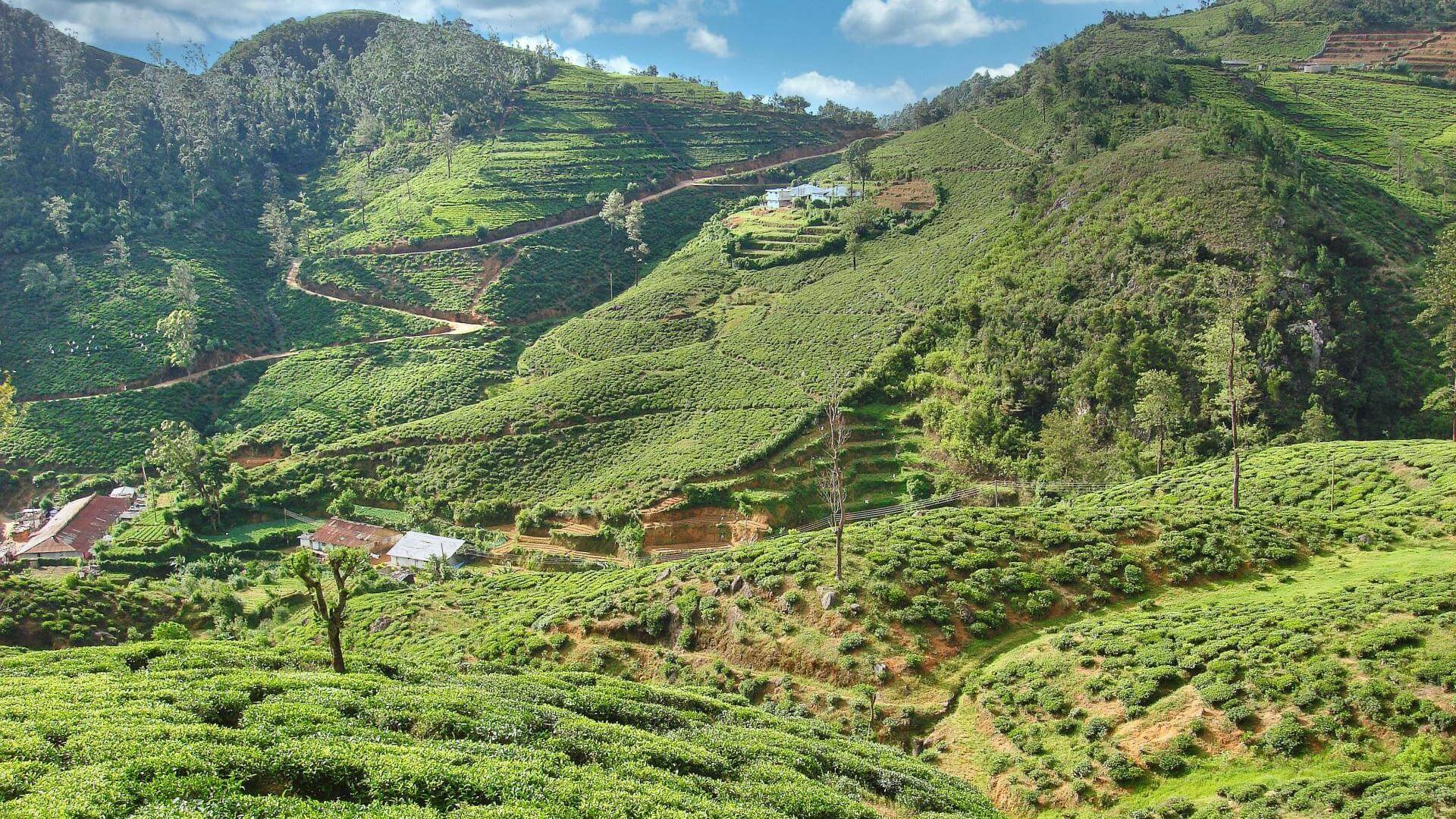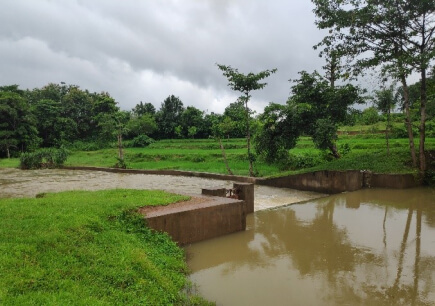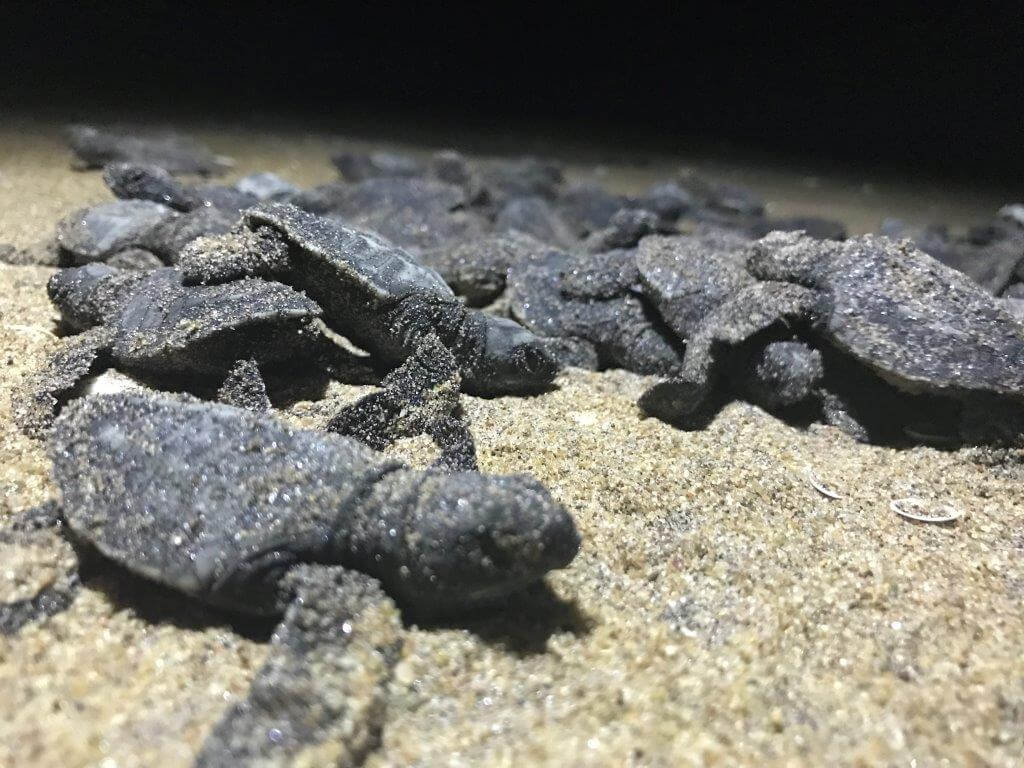Climate Adaptation
Evaluation Management Unit for the Forestry, Land Use and Governance (FLAG) Programme, Indonesia
DFID
Evaluation Management Unit for the Forestry, Land Use and Governance (FLAG) Programme, Indonesia
FLAG was a £32.5 million, 3-year programme to support action to reduce the rate of deforestation and Peat land degradation in Indonesia...
12.1
Generated 12.1 million tonnes of avoided CO2e
20,958 hectares
Prevented 20,958 hectares of deforestation and forest degradation
33,000
Reduced GHG emissions from an area of 33,000 hectares of peatlands
Infrastructure for Climate Resilient Growth in India (ICRG) Programme, India
DFID
Infrastructure for Climate Resilient Growth in India (ICRG) Programme, India
ICRG was a 43-month Technical Assistance (TA) Programme commissioned by the United Kingdom’s Department for International Development (DFID) that aimed to support the Ministry of Rural Development (MoRD), Government of India. Selected from 2500 blocks under the special focus of MGNREGA by the Government of India, the ICRG programme was implemented in 103 blocks in the states of Bihar, Odisha, and Chhattisgarh. The programme aimed to ensure that the most vulnerable sections in selected geographies were able to tackle the impact of climate extremes. Facilitating a better understanding of climate factors, capacity building of field practitioners, and improving the design of the work being undertaken, ICRG synergized its resources with MGNREGA in building climate resilience of the most vulnerable to achieve improved quality and climate resilient assets.
35000+
people trained on climate proofing MGNREGA assets
18,000+
MGNREGA and Line Department functionaries trained
27
Training Modules & Guidebooks developed
Preparation of Integrated Coastal Zone Management Plan (ICZMP) and Shoreline Management Plan for Odisha, India
THE WORLD BANK
Preparation of Integrated Coastal Zone Management Plan (ICZMP) and Shoreline Management Plan for Odisha, India
The Government of Odisha, with financial assistance from the Ministry of Environment and Forests (MoEF), Government of India (GoI) and the World Bank, initiated the ICZMP project. The project aimed...
GIS-Based Database Creation
to analyse potential for damage to people and property due to coastal hazards
Conceptual Modelling
to undertand coastal behaviour to comprehend the past, present and potential future hazards
Sectoral Plan
development with focus on coastal sectors of highest priority considering all the sectoral aspects
Land Vulnerability Mapping
for analysing potential for damage to people and property due to coastal hazards
Shoreline Management Sub Plan
creation to provide broad management strategies for delineated sediment cells
Integrated Coastal Zone Management Plan
creation to access all the coastal features and provide implementation strategies in consultation with all the stakeholders
Climate Adaptation
Evaluation Management Unit for the Forestry, Land Use and Governance (FLAG) Programme, Indonesia
DFID
Evaluation Management Unit for the Forestry, Land Use and Governance (FLAG) Programme, Indonesia
FLAG was a £32.5 million, 3-year programme to support action to reduce the rate of deforestation and Peat land degradation in Indonesia...
12.1
Generated 12.1 million tonnes of avoided CO2e
20,958 hectares
Prevented 20,958 hectares of deforestation and forest degradation
33,000
Reduced GHG emissions from an area of 33,000 hectares of peatlands
Infrastructure for Climate Resilient Growth in India (ICRG) Programme, India
DFID
Infrastructure for Climate Resilient Growth in India (ICRG) Programme, India
ICRG was a 43-month Technical Assistance (TA) Programme commissioned by the United Kingdom’s Department for International Development (DFID) that aimed to support the Ministry of Rural Development (MoRD), Government of India. Selected from 2500 blocks under the special focus of MGNREGA by the Government of India, the ICRG programme was implemented in 103 blocks in the states of Bihar, Odisha, and Chhattisgarh. The programme aimed to ensure that the most vulnerable sections in selected geographies were able to tackle the impact of climate extremes. Facilitating a better understanding of climate factors, capacity building of field practitioners, and improving the design of the work being undertaken, ICRG synergized its resources with MGNREGA in building climate resilience of the most vulnerable to achieve improved quality and climate resilient assets.
35000+
people trained on climate proofing MGNREGA assets
18,000+
MGNREGA and Line Department functionaries trained
27
Training Modules & Guidebooks developed
Preparation of Integrated Coastal Zone Management Plan (ICZMP) and Shoreline Management Plan for Odisha, India
THE WORLD BANK
Preparation of Integrated Coastal Zone Management Plan (ICZMP) and Shoreline Management Plan for Odisha, India
The Government of Odisha, with financial assistance from the Ministry of Environment and Forests (MoEF), Government of India (GoI) and the World Bank, initiated the ICZMP project. The project aimed...
GIS-Based Database Creation
to analyse potential for damage to people and property due to coastal hazards
Conceptual Modelling
to undertand coastal behaviour to comprehend the past, present and potential future hazards
Sectoral Plan
development with focus on coastal sectors of highest priority considering all the sectoral aspects
Land Vulnerability Mapping
for analysing potential for damage to people and property due to coastal hazards
Shoreline Management Sub Plan
creation to provide broad management strategies for delineated sediment cells
Integrated Coastal Zone Management Plan
creation to access all the coastal features and provide implementation strategies in consultation with all the stakeholders

Renavigating focus: How India Inc. will lead transformative change with ESG goals post-COVID times

The Center for People and Forests (RECOFTC)
Voices for the Mekong Forests Project: Mid-term Review, Cambodia, Lao PDR, Myanmar, Thailand and Vietnam
Voices for Mekong Forests (V4MF) is a 5-year programme which aims to give local communities a voice and improve forest governance by strengthening the participation of non-state actors

The German Agency for International Cooperation (GIZ)
IGEN-Access – Scoping Study for Agriculture-Energy Nexus in Rural Areas of Delhi
The Indo-German Energy Programme – Access to Energy in Rural Areas (IGEN-Access) is a bilateral cooperation project carried out by the Deutsche Gesellschaft für Internationale Zusammenarbeit (GIZ) GmbH on behalf of the Federal Ministry for Economic Cooperation and Development (BMZ), Government of Germany and Ministry of New and Renewable Energy (MNRE), Government of India. The objective of IGEN-Access is to create a conducive environment for rural renewable energy enterprises to make energy services easily accessible to the rural population.

FAO (UN)
National Forest Monitoring System Programme (NFMS), Democratic Republic of Congo (DRC)
National Forest Monitoring System (NFMS) measures the impact of anthropogenic activities on the emissions/absorption of Greenhouse Gas (GHG) related to land-use change.

Swiss Agency for Development and Cooperation (SDC), Embassy of Switzerland
Design and Development of a Web based Geo-spatial Application on Climate Vulnerability and Risk Assessment for 12 Himalayan States, India
The Swiss Agency for Development and Cooperation (SDC), through Indian Himalayas Climate Adaptation Programme (IHCAP) aimed to enhance the resilience of vulnerable communities in the Indian Himalayas by strengthening the capacities of Indian institutions in climate science

WHO
Action Plan to Enhance Climate-Resilient Health Facilities at the Hospitals in Madhya Pradesh, India
WHO in partnership with the National Centre for Disease Control (NCDC) supported a study “Action Plan to Enhance Climate-Resilient Health Facilities at the Hospitals in Madhya Pradesh.” The underlying principle of the study was to assess climate change risks






